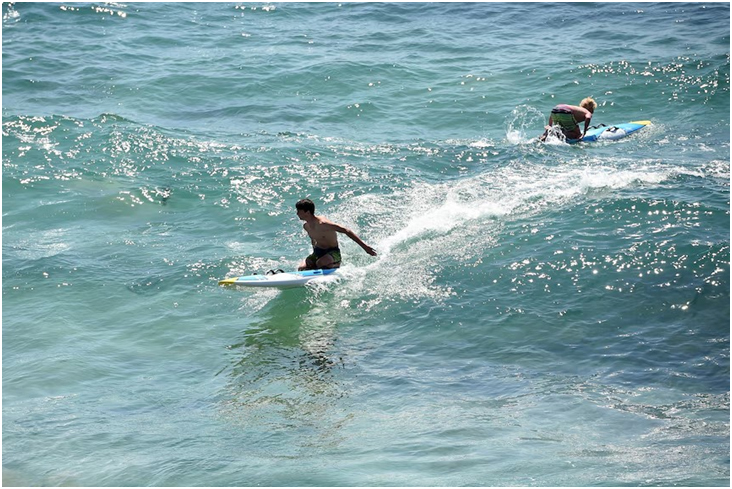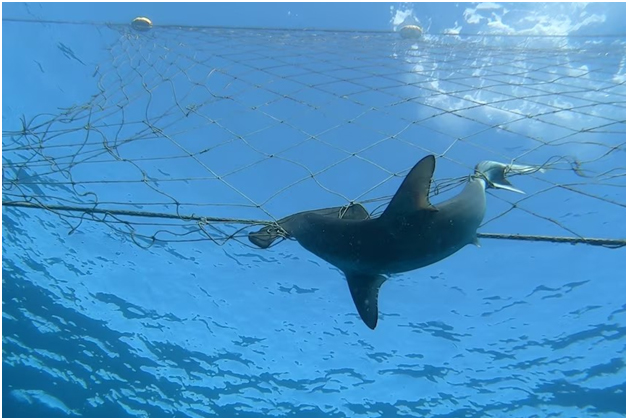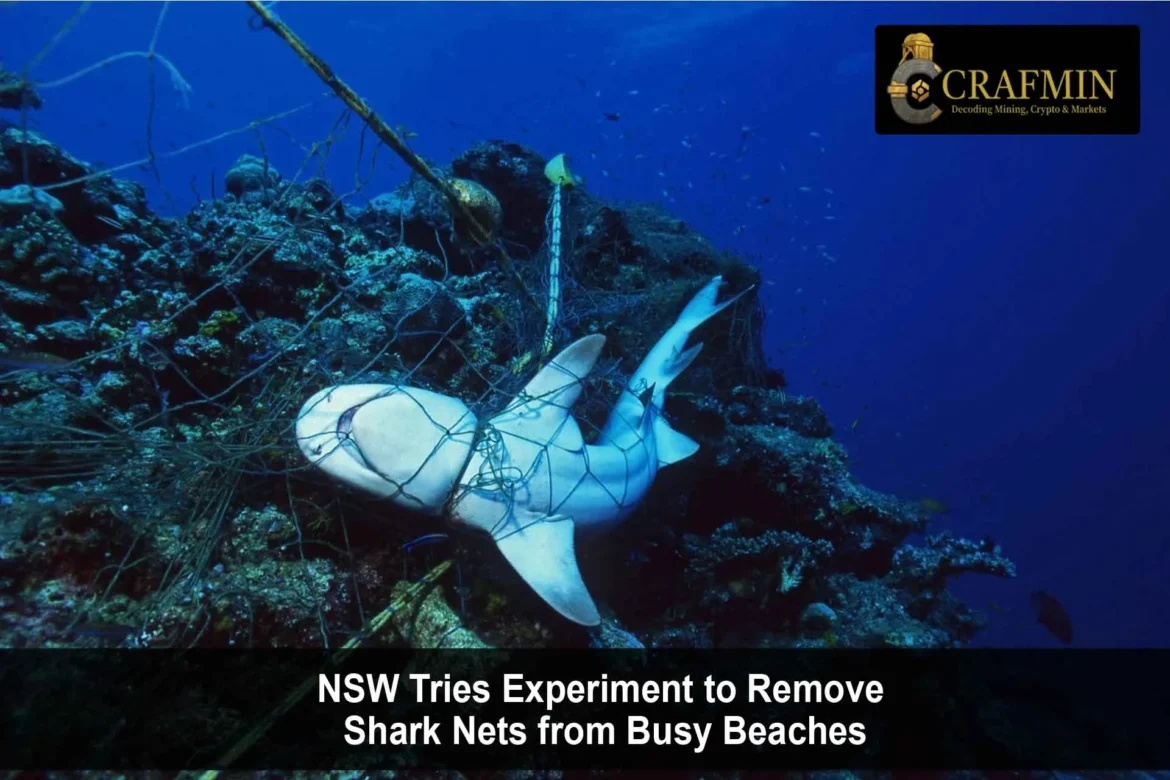New South Wales’ government has requested coastal councils to try removing shark nets, a move generating intense public debate and extensive media coverage.
Swimmers, local area councillors, ocean specialists, and holiday-goers now stand by and see natural barriers being scrutinized anew—drawn into increased controversy over their effectiveness, their cost to the environment, and their use.
What Just Happened?

Source: AAP: Dan Himbrechts
The NSW government has officially approached councils on the coast—and Sydney’s eastern suburbs—to participate in an official trial of the removal of shark nets. Trial locations would likely be major beaches like Bondi, Manly and Wollongong.
The trial will run over a few months, where beach managers will employ drum lines, increased aerial and drone surveillance, and education programs to measure shark risk reduction off-nets.
The government acted after months of campaigning by environmental groups and surfers’ associations, who were worried about the impact of the nets on sea creatures—chiefly their entanglement of dolphins and turtles.
Why the Timing Is Important

Source: ABC News/ Olaf Meynecke
The trial is set against a background of heated domestic debate about sea conservation and safety. Shark appearances off Bondi beach in recent summers caused public fears, but experts indicate that non-lethal solutions could find a better balance between conservation and protection.
Operators on the beach are being pressured to reassure tourists while re-examining traditional protective aspects in the run-up to summer.
What Experts and Councils Say
Local council officers responded with a mix of great excitement and great caution. One from Bondi said:
“We welcome this trial—because it will challenge us to test if safer, less intrusive devices can work as well or indeed better than nets.”
Marine conservationists and biologists are backing the trial because they cite poor performance by nets in some circumstances and undesirable bycatch of non-target animals. The percentage of animals caught that aren’t sharks is estimated to be as high as 60%—a figure driving demands for change today.
Surf lifesavers do raise the point: nets have previously slowed the number of shark attacks. They warn that there must be a delay to fit in other measures.
Real Life Impact: Public, Tourism, and Coastal Communities
For Australian beachgoers, tourists and citizens alike, the trial really does create major concerns.
Public Confidence: Research shows that 72% of beach users are more secure with nets. Their withdrawal causes initial concern.
Tourism Sensitivity: Holiday destinations such as Bondi depend on summer holidays. Shifts in safety perception can deter numbers of visitors and, consequentially, income.
Community Feedback: Surf clubs and chambers of commerce locally are asking for clarity and sustained outreach efforts in an effort to keep locals informed.
A local owner of a café stated:
“Holiday tourists provide our summer income—whatever deters tourist confidence impacts livelihoods. But if the trial can secure safety and protect marine life, it’s a go.”
Also Read: /trezor-phishing-scam-support-warning
How the Trial Will Work
The pilot strategy involves:
- Removing netting at trial beaches for a temporary period
- Employing onboard sonar, patrol boats, and drum lines to locate and deter sharks
- Employing drones and spotter planes for early warning
- Initiation of community education campaigns: shark safety messages are provided to beachgoers, flag signals, and live feeds through apps and signage
- Tracking results such as shark sightings, incident frequency, marine entanglement, and swimmer activity.
The authorities plan to release a complete assessment report before the forthcoming swimming season.
Broader Context and Comparative Precedents
Globally—in Hawaii, for instance, and South Africa—most have abandoned nets in favor of respond-and-adapt systems, which involve public education combined with early warning systems. Australia’s pilot does that as well.
A 2024 coincidence was that a survey discovered shark net removal boosted modestly the rates of bites in similar circumstances offshore. Rather, improved data and communications minimized both risks and beach deaths.
Stakeholders to Watch
| Group | Viewpoint |
| Marine Conservationists | Net removal protects biodiversity and reduces bycatch. |
| Surf Life Saving Clubs | Emphasise proven physical barriers; seek phased implementation. |
| Councils & Local Businesses | Balance visitor safety with ecological and economic sustainability. |
| Government Agencies | Interested in scientifically backed outcomes and public sentiment balance. |
What’s Next and Why It Matters
As councils review participation decisions and trial planning begins, the outcome has significance beyond NSW:
- Could redefine national beach safety policy.
- Influences legislative review of marine protection laws.
- Impacts how Australia reconciles tourism, tradition, and conservation in coastal management.
- Spotlights potential for innovation in early warning safety tech too.
Final Word
NSW’s decision to trial shark net removal at high-profile beaches marks a turning point in how the state—and perhaps the nation—approaches public safety and marine ecosystems. The pilot may reveal whether we can retain confidence in our most famous beaches while reducing harm to marine life. If successful, it sets a new coastal safety standard built not on barriers, but on smarter observation, community engagement, and adaptability.
Crafmin.com – Real-time news and insights in Crypto, Mining, Tech, AI, Forex, and Global Markets.

